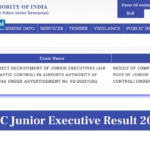As the United States battles to lead the global charge on climate solutions, a new challenge is rising—not from technology, funding, or science, but from immigration policy. Former President Donald Trump’s return to hardline stances on immigration is threatening to derail the momentum of one of America’s fastest-growing and most important industries: climate technology.
From restricting H-1B visas to promoting mass deportations and creating a climate of fear among skilled foreign workers, Trump’s immigration agenda has become a significant barrier to growth, innovation, and global competitiveness in climate tech. In this blog, we explore why the clean energy future may depend as much on immigration policy as it does on solar panels and electric vehicles.
🌍 Climate Tech Depends on Global Talent
The climate tech sector is diverse and multidisciplinary. It includes startups and corporations working on:
- Renewable energy (solar, wind, hydrogen)
- Energy storage (batteries, grid technology)
- Carbon capture and sequestration
- Electric vehicles and transportation innovation
- Agri-tech and climate-resilient food systems
Building these solutions at scale requires scientists, engineers, data analysts, and entrepreneurs from across the globe. Many of the founders and employees behind America’s most promising climate tech startups are immigrants or foreign-born researchers.
Key Stats:
- 1 in 4 STEM workers in the U.S. is foreign-born
- Over 50% of U.S. unicorn startups have at least one immigrant founder
- Universities and labs rely on international graduate students for climate research and innovation
Without this talent pipeline, the sector slows down. Innovation lags. Startups die. And the U.S. risks losing ground to Europe and China in the race for climate leadership.
⛔ Trump’s Immigration Proposals: A Chilling Effect
Trump’s policy positions, both from his first term and now in his 2024 campaign, present direct threats to this workforce:
1. H-1B Visa Restrictions
In his previous term, Trump implemented rules to tighten the H-1B visa program, making it harder for employers to hire foreign tech workers. While Biden reversed many of these changes, Trump has promised to reimpose and expand them if re-elected.
For climate tech startups—often small, fast-moving companies—this creates hiring headaches. Long visa processes, denial risks, and regulatory uncertainty make it hard to attract global talent.
2. Mass Deportation and Fear-Based Policy
Trump has also vowed to begin mass deportations of undocumented immigrants and expand police cooperation with ICE. This doesn’t just affect undocumented populations—it creates a culture of fear that impacts:
- Visa holders with temporary status
- Immigrant families in mixed-status households
- International students unsure about post-graduate opportunities
Talented workers may choose to relocate to Canada, Europe, or Australia—places with friendlier immigration policies and strong climate tech sectors.
3. Suspending Legal Pathways
Trump has floated suspending certain types of work-based immigration during economic downturns. He has also criticized programs like OPT (Optional Practical Training), which allow international graduates to work in the U.S.
This hits directly at university-to-startup pipelines, where many climate researchers transition into the private sector to launch innovations.
💼 The Startup Impact: Talent Bottlenecks
Imagine you’re the founder of a startup working on next-gen solar panels or direct air capture. You’ve raised seed funding, filed patents, and are ready to build a prototype—but your lead battery chemist from Germany can’t renew her visa. Or your data science hire from India can’t get an H-1B. Or your CFO from Nigeria decides to move to Toronto instead.
Suddenly, the company stalls—not because the science failed, but because the talent pipeline collapsed.
A 2023 report from TechNet found that:
“More than 60% of clean tech startups say immigration restrictions are a top concern for hiring and growth.”
Trump’s anti-immigration rhetoric has also made foreign investors nervous, slowing down venture capital investments into climate tech startups led by immigrants.
🏫 Universities Are Feeling the Pressure Too
America’s top climate research institutions—like MIT, Stanford, UC Berkeley, and the National Renewable Energy Laboratory—rely on international graduate students and postdocs to lead cutting-edge projects. Many of these students intend to stay in the U.S. and work in startups or national labs after graduation.
But if immigration pathways like OPT, H-1B, and green cards become harder to navigate, these bright minds may look elsewhere. Canada and the UK, for instance, have aggressively marketed themselves to international students by offering clearer post-study work rights.
The brain drain risk is real—and it starts in the classroom.
🇨🇳 China and Europe Are Watching Closely
While the U.S. struggles with internal policy battles, China and the EU are accelerating their investments in climate technology. China, in particular, is already the world’s largest producer of solar panels, EV batteries, and wind turbines.
If American companies can’t hire the talent they need or create stable pathways for immigrants to stay and build here, they will lose their edge. Foreign governments are ready to poach this talent—and the geopolitical consequences could be severe.
A weakened U.S. climate tech sector could also stall progress toward global emissions targets, given America’s outsized role in tech development.
🤝 Immigration Reform = Climate Acceleration
Advocates and industry leaders are calling on policymakers to see immigration as climate infrastructure. Just as we need better grids and charging stations, we need stronger systems for bringing in the best global minds to solve the climate crisis.
Proposals on the table include:
- Expanding H-1B and STEM green card caps
- Creating startup and entrepreneur visas
- Extending OPT timelines for climate-related degrees
- Streamlining work permits for researchers and scientists
These policies aren’t just good for immigrants—they’re vital for the planet.
💬 Voices from the Industry
Prominent climate leaders have spoken out about the risks of anti-immigration policies:
“America’s leadership in climate innovation depends on its ability to attract and retain global talent. Restricting immigration is like slashing the tires on a race car.”
— Varun Sivaram, Chief Climate Officer, Orsted Americas
“Half my engineering team wouldn’t be here under Trump’s 2020 rules. We can’t fight climate change with empty labs.”
— Anonymous Climate Tech CEO
📣 Final Thoughts
Climate change is the greatest challenge of our generation. It demands bold solutions, international cooperation, and the best minds the world has to offer. The U.S. should be a magnet for talent—not a fortress.
Donald Trump’s immigration policies pose a real and present danger to America’s ability to lead in climate innovation. As voters, investors, entrepreneurs, and citizens, we must recognize that immigration is not a side issue—it’s a cornerstone of any serious climate strategy.
Because if the people building the future can’t stay here, the future will be built somewhere else.
🟢 Summary:
- Trump’s immigration plans threaten the flow of skilled workers into climate tech.
- H-1B restrictions, deportation threats, and visa suspensions create major barriers.
- Startups, universities, and national labs are already feeling the talent crunch.
- Reforming immigration is essential to maintain U.S. leadership in climate innovation.










